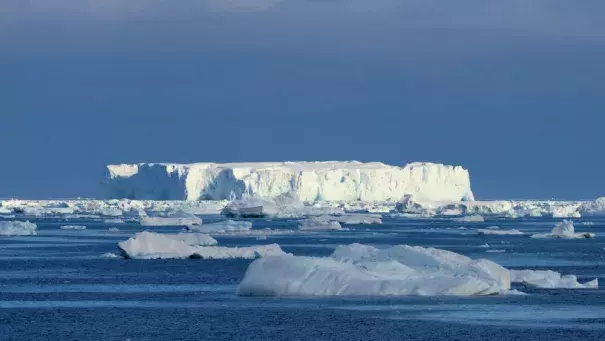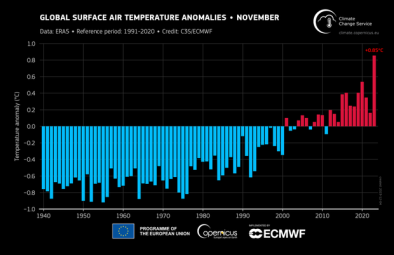New Research Sparks Concerns That Ocean Circulation Will Collapse

Climate Signal: Climate change is causing widespread and rapid changes in the atmosphere, ocean, cryosphere, and biosphere. Check out our Earth Systems page for more information.
Article Summary:
It is being hailed as a sea change in scientific understanding of the global ocean circulation system and how it will respond as the world heats up. A doomsday scenario involving the collapse of the circulation — previously portrayed in both peer-reviewed research and the climate disaster movie The Day After Tomorrow — came a lot closer in the last month. But rather than playing out in the far North Atlantic, as previously assumed, it now seems much more likely at the opposite end of the planet.
A new analysis by Australian and American researchers, using new and more detailed modeling of the oceans, predicts that the long-feared turn-off of the circulation will likely occur in the Southern Ocean, as billions of tons of ice melt on the land mass of Antarctica. And rather than being more than a century away, as models predict for the North Atlantic, it could happen within the next three decades.
t is being hailed as a sea change in scientific understanding of the global ocean circulation system and how it will respond as the world heats up. A doomsday scenario involving the collapse of the circulation — previously portrayed in both peer-reviewed research and the climate disaster movie The Day After Tomorrow — came a lot closer in the last month. But rather than playing out in the far North Atlantic, as previously assumed, it now seems much more likely at the opposite end of the planet.
A new analysis by Australian and American researchers, using new and more detailed modeling of the oceans, predicts that the long-feared turn-off of the circulation will likely occur in the Southern Ocean, as billions of tons of ice melt on the land mass of Antarctica. And rather than being more than a century away, as models predict for the North Atlantic, it could happen within the next three decades.
Full Story: Yale Environment 360
Related Content






